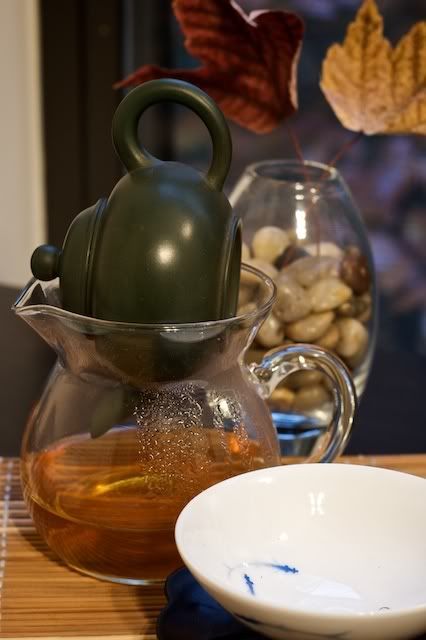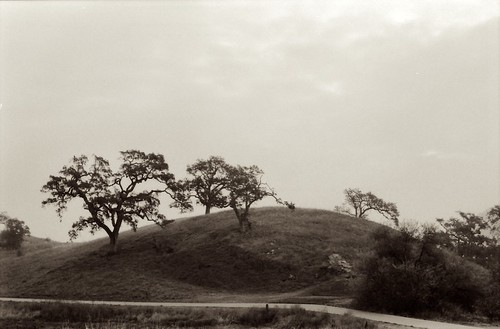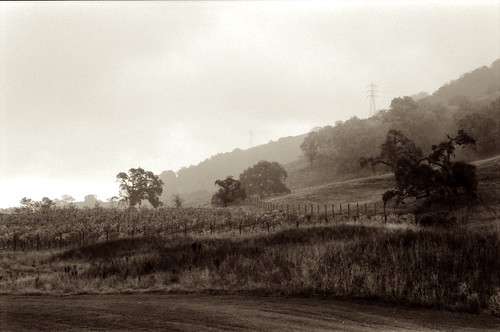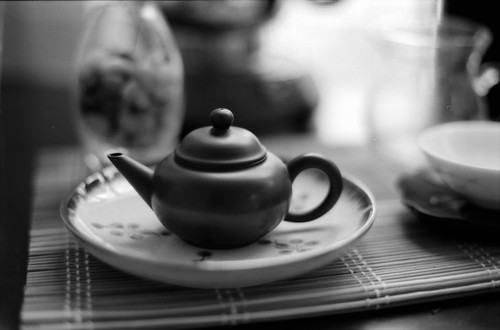Tie Luo Han is the name of one of the Si Da Ming Cong, the four famous varietals of Wuyi yancha, which also includes Da Hong Pao, Shui Jin Gui, and Bai Ji Guan. "Tie" as in Tie Guan Yin, means "iron." "Luo Han" is translated into English as a number of different things (including Warrior Monk, Apostle, etc.), but it is really the Chinese version of the Sanskrit word "arhat", meaning "noble one."
An arhat is, basically, a follower of the Buddha who has achieved enlightenment. Though an arhat has reached Nirvana, he/she is not regarded as highly as a Bodhisattva (such as Avalokiteśvara/Guanyin, the Bodhisattva of Compassion, for which
Tie Guan Yin is named) or a Buddha. According to Theravada buddhist teachings, arahantship is the highest goal most can obtain, whereas buddhahood is the ultimate goal for Mahayana buddhists.
 A 10th-12th century depiction of a seated Luo Han. Photo by Maulleigh.
A 10th-12th century depiction of a seated Luo Han. Photo by Maulleigh.In Chinese Buddhist mythology, there are several Luo Han (traditionally seen in a group of 16, 18, or many more) who were commissioned by the Buddha to remain in the world to preserve the Buddha's teachings until the coming of the next Buddha, Maitreya. (Fun fact: the classic "fat buddha" you see in artwork and charms actually represents Maitreya, NOT the historical Siddhartha Gautama Buddha.) According to Andao Tea, Tie Luo Han (the tea varietal) supposedly originated in the buddhist cave dwellings said to be inhabited by these Luo Han / Arhats, hence its name. The "tie" part of the name is said to have come from the iron color of the tea leaves.
References (No, these aren't MLA formatted, so shoot me):
"Buddhist Traditions" course at Vanderbilt University, Fall 2007 (General info on arhats)
Encyclopedia Britannica Online:
Arhat (Info on Chinese mythology)
Andao Tea:
Wu Yi Iron Arhat (Info on Tie Luo Han mythology)
Class: Oolong
Origin: Fujian province, China
Year: 2006
Vendor:
Teacuppa (
Product page)
Price: $32.50 (100g) / $6.00 (15g)

Teacuppa describes this tea as, "Full-bodied and supple, with gentle floral notes and the traditional long-lasting finish." I have to agree completely; this is a fine tea with good body, a nice oiliness on the lips, and classic fruity yancha flavor.
The aroma is lovely; mostly chocolate, with a touch of raspberry. The flavor is very similar. Like a lot of Teacuppa's yancha, this is not highly roasted, so there is very little charcoal flavor unless it is brewed with a heavy hand. (As with most Wuyi yancha, I fill the teapot about 1/2 to 3/4 full, then start with ~5-10 second steeps and increase from there.) The flavor is soft and smooth, though I do not mean to imply that it is weak. Yum!

Though it isn't very complex, it isn't boring either. It's a nice happy medium, and makes for an enjoyable brew. It is a bit on the expensive side, but fortunately Teacuppa offers it in 15g amounts. I definitely recommend trying a sample of this tea.







